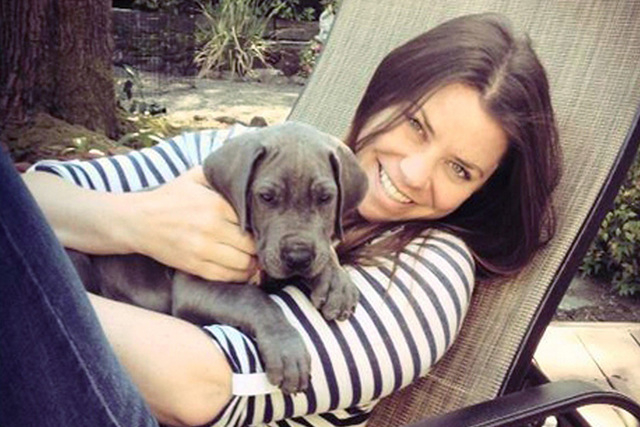‘Death with dignity’ bill headed to Nevada Legislature
Nevadans diagnosed with terminal diseases could legally end their lives by taking lethal doses of doctor-prescribed medication under a proposed law that would see the Silver State join a growing national movement to give people who are dying greater control over their final days.
State Sen. David Parks, D-Las Vegas, said his bill will come before the biennial 2015 legislative session that starts Feb. 2 and is one of his highest priorities. If it fails, he said he’ll organize a grass-roots campaign and try again in 2017.
Sens. Tick Segerblom, D-Las Vegas, and Ben Kieckhefer, R-Reno, have asked to be co-sponsors of the bipartisan legislation, according to Parks, who said he has widespread support, although some backers didn’t win re-election Nov. 4.
“In general discussions, almost everyone whom I’ve talked to has a devastating story to tell regarding a friend or relative who died under unbearable circumstances where this legislation would have provided an alternative to enduring excruciating agony,” Parks said.
For Parks, his story involves a woman named Cathy who first worked with him 35 years ago when he was the city of Las Vegas budget director. She was severely disabled from a childhood case of polio. As an adult, she got cancer, he said.
“She succumbed to bladder cancer, which is both excruciatingly painful and humiliating,” Parks said. “Morphine only provided limited relief for Cathy and shortly before dying she asked me to try to get an Oregon-style death with dignity law passed in Nevada.”
Parks asked for the bill to be drafted before Oregon’s Brittany Maynard made international headlines by ending her life on Nov. 1 after the 29-year-old was diagnosed with brain cancer and given six months or less to live. Maynard’s widely publicized case — she recorded videos viewed by millions of YouTube users and moved to Oregon because of its law — seemed to breathe new life into efforts to give the dying more legal power over their own fate.
Maynard, in her final Facebook post, wrote that she was able to live and die on her own terms: “Goodbye to all my dear friends and family that I love. Today is the day I have chosen to pass away with dignity in the face of my terminal illness, this terrible brain cancer that has taken so much from me … but would have taken so much more.”
At the end of her life, Maynard was working with a nonprofit group, Compassion & Choices, which advocates for “death with dignity” laws across the nation. A spokeswoman, Anne Singer, said Maynard’s involvement changed the debate, focusing the issue on individuals who, no matter what age, want to be in charge of their own health care decisions.
“She probably didn’t realize the power that she had,” Singer said. “She had a lot of clarity and conviction and courage.”
BILL PATTERNED AFTER OREGON LAW
Parks’ legislation would be patterned after Oregon’s 2-decade-old law, the most advanced with patient protections, and one in Washington state, in effect since 2008. Vermont has had a similar “death with dignity” law since 2013.
Montana and New Mexico have laws that have been upheld by courts protecting doctors who assist patient deaths in certain cases, but the states don’t have formal “death with dignity” laws.
More than half a dozen other states are considering Oregon-like “death with dignity” laws, including Connecticut, Hawaii, Kansas, Massachusetts, New Hampshire, New Jersey and Pennsylvania. California, too, might revive legal efforts.
Maynard’s death drew headlines and support across the country as she chronicled her final days and decision-making on social media, although right to life folks who also oppose abortion, major medical groups. religious leaders and disability rights organizations strongly oppose physician-assisted suicide — a term advocates abhor — as wrongheaded, unwise and open to abuse.
Melissa Clement, president of Nevada Right to Life, said her group’s objections to the law focus on what she called “doctor prescribed suicide,” or a physician’s role in helping a sick person end his or her life prematurely.
“One must merely look to Oregon to see the reasons why dignity has nothing to do with what our state is considering,” Clement said. “In any other context, suicidal ideation would be cause for great concern because it is one of the leading indicators of depression or other serious mental distress. Yet somehow, if an individual is elderly and a burden, disabled and a burden, mentally ill, marginalized, or gravely ill — suicide, facilitated by a doctor, nurse, pharmacist — is somehow the best option.”
Marilyn Golden, senior policy analyst with the Disability Rights Education and Defense Fund, said her organization opposes physician-backed death for terminal patients because it’s open to abuse by family members and the for-profit insurance and health care industries since a lethal prescription can cost only about $300.
“At less than $300, assisted suicide is, to put it bluntly, the cheapest treatment for a terminal illness,” Golden wrote in a piece published on CNN’s website on Oct. 14 during the debate over Maynard’s brain cancer case. “… If life-sustaining expensive treatment is denied or even merely delayed, patients will be steered toward assisted suicide where it’s legal.”
Golden cited two specific cases in Oregon involving lung and prostate cancers where health insurance plans denied chemotherapy treatment, but said they would pay for assisted suicide among other options instead.
“To say to someone, ‘We’ll pay for you to die, but not for you to live’ — it’s cruel,” Golden wrote.
RIGOROUS APPROVAL PROCESS
Parks and other backers of “death with dignity” laws argue the patients are not suicidal, but want to have more autonomy in deciding how their lives end in order to avoid being incapacitated, a burden on families or suffer unbearable pain.
In fact, patients must go through a rigorous process to receive the deadly prescriptions, which are usually barbiturates that can end people’s lives painlessly and quickly. At least two physicians must confirm a patient’s terminal diagnosis and must ensure the person isn’t depressed or mentally ill, which would disqualify the patient from the program.
Under the proposed Nevada law, a patient must be 18 years or older to get the lethal medication, a state resident (of at least 30 days), diagnosed with a terminal illness and capable of making health care decisions for himself or herself.
The diagnosis by a primary doctor must be certified by a Nevada consulting physician, who must also certify that the patient is mentally competent to make and communicate health care decisions. If either physician determines that the patient’s judgment is impaired, the patient must be referred for a psychological examination.
There’s a multi-step process to get the fatal prescription:
- First, a patient makes a verbal request to a primary physician. Then there’s a 15-day waiting period.
- A second verbal request is made, followed by another 15-day waiting period.
- A written request is made to the main physician, witnessed by two people who are not caregivers or family members.
- Then there’s a 48-hour waiting period before a patient can pick up the prescribed medications.
The patient can decide not to use the prescription or can rescind his or her request for the drugs at any time.
The doctor is required to inform the patient of alternatives to taking the lethal dose of medicine, including palliative care, hospice and pain management options. The doctor also must ask the patient to notify their next of kin.
Finally, use of the law cannot affect the status of a patient’s health or life insurance policies, Parks said. For example, the cause of death in Maynard’s case would be brain cancer and not suicide, a ruling that otherwise could affect policies.
Doctors and patients who comply with the law are protected from criminal prosecution. And physicians and health care systems are not obligated to participate in the death with dignity law.
“It is important to note that death with dignity legislation is purely voluntary,” Parks said. “A sizable percentage of individuals who proceed to obtain the prescription medication that will end their lives peacefully never endure the agonizing pain that might befall them, and, therefore, do not take the prescribed medication.”
Just having the lethal prescription on hand, however, gives terminal patients peace of mind.
A recent study in Oregon showed that a total of 1,173 people had received prescriptions for life-ending medication under the law that’s been enforced since about 1997, but only 752 have died from taking such drugs — or about two-thirds.
Some 90 percent of those patients were already enrolled in hospice care and 98 percent had insurance coverage, whether private, Medicaid or Medicare, according to the study, suggesting finances were not a factor in any decision-making.
Most of the Oregon patients, or 79 percent, had cancer. Another 7.6 percent had ALS, or Amyotrophic Lateral Sclerosis, a disease of nerve cells in the brain and spinal cord that control voluntary muscle movement.
Oregon doctors were asked what motivated patients to get the lethal drugs. The top three answers were: loss of autonomy (93 percent), decreasing ability to participate in activities making life enjoyable (88.7 percent), and loss of dignity (73.2 percent). Also making the list were, losing control of bodily functions (50.3 percent), being a burden to caregivers (40 percent), inadequate pain control (23.7 percent) and financial implications of treatment (2.9 percent).
Contact Laura Myers at lmyers@reviewjournal.com or 702-387-2919. Find her on Twitter: @lmyerslvrj.





























